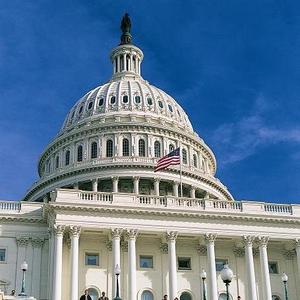Updated biodiesel tax credit legislation introduced in Congress

December 3, 2015
BY Ron Kotrba
Updated legislation was introduced Dec. 3 in the U.S. House and Senate to reinstate the $1 per gallon biodiesel tax credit from 2015-’16 and restructure the incentive as a producer credit next year. The new legislation, sponsored by Sens. Charles Grassley, R-Iowa, and Maria Cantwell, D-Washington, and Reps. Kristi Noem, R-South Dakota, and Bill Pascrell, D-New Jersey, builds on legislation (S. 1946) passed unanimous by the Senate Finance Committee in July.
The petroleum lobby and the Advanced Biofuels Association have been vocal about wanting to keep the incentive as a blender credit, while the National Biodiesel Board and U.S. producers are pushing for the restructuring. The NBB says biodiesel that is produced overseas and blended in the U.S. is increasingly taking advantage of the blender incentive, undermining U.S. production and directing U.S. tax benefits to foreign producers.
“Already this year we have seen more than 500 million gallons of foreign fuel blended in the U.S. to take advantage of the incentive,” stated the NBB. “By limiting the incentive to apply only to domestic production, the reform would save about $90 million, according to the Joint Committee on Taxation.”
Advertisement
Advertisement
Anne Steckel, vice president of federal affairs for NBB, said, “I think lawmakers would universally agree we shouldn’t be using U.S. tax dollars to support the production of foreign fuel. The whole point of this policy is to create American jobs and industry while strengthening our energy security and encouraging innovation in the fuels market.”
NBB also stated that under the blender’s structure, thousands of companies are eligible to apply for the credit at a variety of points along the distribution chain, making it difficult for the RFS to monitor compliance and fraud. “By narrowing the eligibility for the credit to domestic biodiesel producers, the reform would streamline the process for taking the credit,” the organization said. “The incentive will continue benefiting consumers by lowering the cost of biodiesel blended into diesel fuel.”
The Iowa Biodiesel Board noted that the legislation also includes a critical technical update, which would ensure that biodiesel used in off-road applications, such as fuel for agricultural use and Bioheat, will not incur excise tax.
Advertisement
Advertisement
“Finalizing this bill is a huge step forward in reinstating the biodiesel tax credit, which is the lifeblood of this American energy industry,” said Grant Kimberley, executive director of the IBB. “In addition to extending the current $1-per-gallon tax credit for biodiesel for 2015 and through 2016, this bill would finally restructure it to a producer’s credit—something we have been trying to do for years. This is critical because the current structure allows foreign biodiesel producers to take advantage of the credit if their fuel is blended in the U.S.”
Steckel added, “The biodiesel industry cannot grow and support good-paying jobs without some level of predictability on tax policy, and the legislative clock is winding down. This tax incentive has strong bipartisan support, as demonstrated by the bills introduced today. It’s good for the economy, it’s good for the environment and it’s good for consumers. And importantly the reforms included in today’s bills will appropriately focus the incentive on U.S. production.”
BiodieselMagazine.com will continue to follow this important industry issue as it develops.
Related Stories
The U.S EPA on July 17 released data showing more than 1.9 billion RINs were generated under the RFS during June, down 11% when compared to the same month of last year. Total RIN generation for the first half of 2025 reached 11.17 billion.
The U.S. EPA on July 17 published updated small refinery exemption (SRE) data, reporting that six new SRE petitions have been filed under the RFS during the past month. A total of 195 SRE petitions are now pending.
The USDA has announced it will delay opening the first quarterly grant application window for FY 2026 REAP funding. The agency cited both an application backlog and the need to disincentivize solar projects as reasons for the delay.
CoBank’s latest quarterly research report, released July 10, highlights current uncertainty around the implementation of three biofuel policies, RFS RVOs, small refinery exemptions (SREs) and the 45Z clean fuels production tax credit.
The U.S. EPA on July 8 hosted virtual public hearing to gather input on the agency’s recently released proposed rule to set 2026 and 2027 RFS RVOs. Members of the biofuel industry were among those to offer testimony during the event.
Upcoming Events










